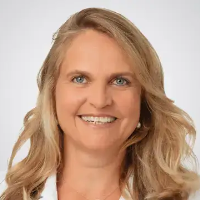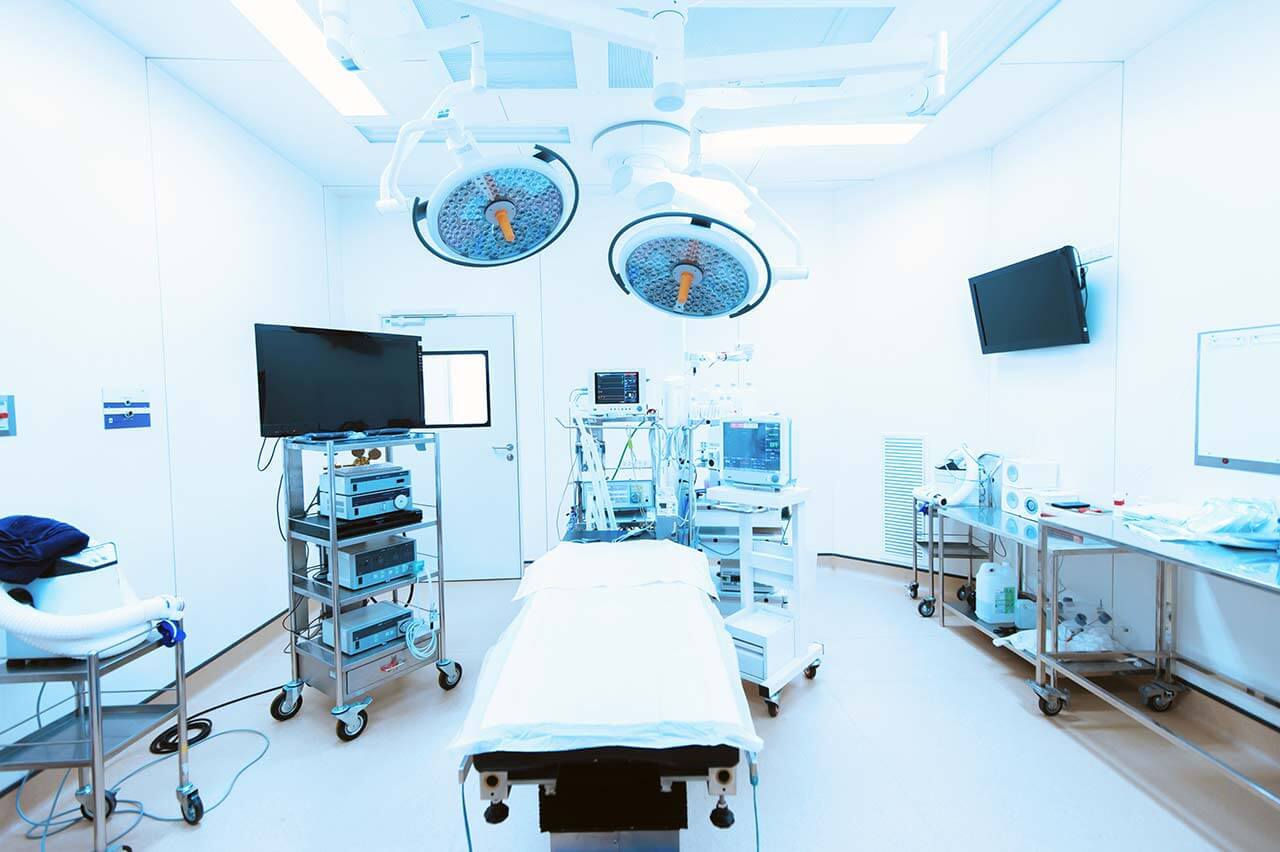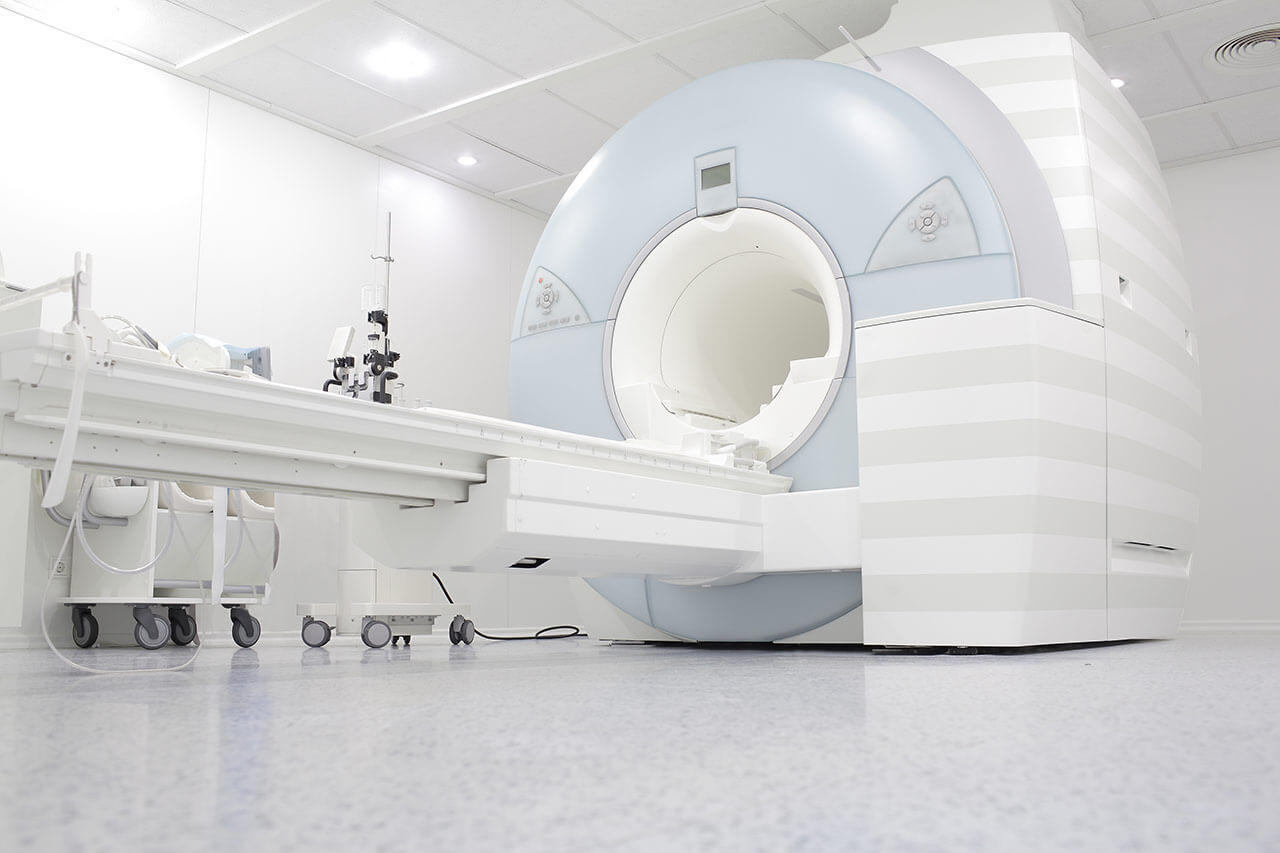
The program includes:
- Initial presentation in the clinic
- clinical history taking
- review of medical records
- physical examination
- eye examination
- laboratory tests:
- complete blood count
- biochemical analysis of blood
- antinuclear antibodies- ANA (SSA/Ro, SSB/La)
- rheumatoid factor (RF)
- Anti-dsDNA
- Erythrocyte sedimentation rate (ESR)
- C-reactive protein (CRP)
- indicators blood coagulation
- mouth (salivary gland) biopsy on indications
- salivary flow
- Schirmer test
- consultation of related specialists
- symptomatic specific treatment
- the cost of essential medicines and materials
- nursing services
- control examinations
- full hospital accommodation
- developing of further guidance
Required documents
- Medical records
Service
You may also book:
 BookingHealth Price from:
BookingHealth Price from:
About the department
The Department of Adult and Pediatric Rheumatology at the ATOS Clinic Heidelberg provides the full range of diagnostic and therapeutic services in its area of competence. The department admits patients of all ages, from young children to the elderly. The department's medical team focuses on patients with rheumatoid arthritis, ankylosing spondylitis, collagenosis, vasculitis, gout, sarcoidosis, autoinflammatory syndromes, and amyloidosis. In the area of pediatric rheumatology, a major interest is the management of chronic and acute inflammatory joint diseases, with a particular focus on all forms of juvenile idiopathic arthritis. The department has an in-house laboratory to perform the necessary tests for a suspected rheumatic disease and rooms with state-of-the-art equipment for ultrasound examinations. Patients can also undergo imaging tests (X-ray, CT, and MRI scans) and radioisotope diagnostics (skeletal scintigraphy and PET/CT) at partner clinics. A treatment regimen is always selected on an individual basis after careful consideration of the diagnostic results. The therapeutic process combines the latest generation of medications, therapeutic exercises, physical therapy, occupational therapy, and other treatment options. The goal of the department's specialists is to relieve pain, prevent the progression of rheumatic pathology, and improve the patient's quality of life. The department is headed by Dr. med. Ines Dornacher.
Many patients with rheumatoid arthritis regularly seek medical help from the department. This is a chronic inflammatory lesion of the joints of unknown etiology, accompanied by systemic damage to internal organs (lungs, liver, and heart). The main manifestation of the disease is pain and swelling of various joints. As rheumatoid arthritis progresses, pain increases with movement and at rest, and the condition also causes morning stiffness, swelling, and impaired joint function. The standard diagnostic protocol for suspected rheumatoid arthritis includes a complete blood count, a blood biochemistry, a rheumatoid factor test, X-ray scanning of the joints of the hands and feet, ultrasound scans of the joints, and chest X-ray to exclude damage to the lungs and heart. If the diagnosis is confirmed, the department's specialists begin to develop an individual treatment regimen because the progression of the disease may lead not only to a decrease in the quality of life, but also to serious movement restrictions, including disability. The primary task of specialists is to relieve pain and control the disease. For this purpose, they use drug therapy with glucocorticoids, nonsteroidal anti-inflammatory drugs, and painkillers. Basic anti-inflammatory drugs are always prescribed, because they can suppress inflammation and pathological activation of the immune system, which not only eliminates the manifestations of inflammation, but also slows down the destruction of joint tissues. Modern biologic drugs are also used in treatment. In addition to drug therapy, exercise therapy, massage, and physiotherapy may be prescribed.
An important focus of the department's daily clinical practice is providing medical care to patients with ankylosing spondylitis (Bechterew's disease). This chronic inflammatory disease affects the joints of the spine and periarticular tissues, as well as the sacroiliac joints. The main manifestation of ankylosing spondylitis is pain in the lumbar region, which over time spreads to other parts of the spine. In most cases, the pain is quite persistent, and it may only be temporarily relieved after taking medications. If left untreated, ankylosing spondylitis progresses to affect the entire spine, resulting in a curvature of the spine. At this stage, it becomes difficult for a person to move around. There is also a high risk of developing inflammatory damage to the heart muscle, pericardium and lungs, as well as autoimmune kidney damage. If ankylosing spondylitis is suspected, the patient undergoes a series of laboratory tests, X-rays, and/or magnetic resonance imaging of the spine. Treatment includes conservative therapy with painkillers and anti-inflammatory drugs, exercise therapy, massage, acupuncture, and other procedures.
The department also represents the area of pediatric rheumatology. Doctors treat young patients with juvenile idiopathic arthritis, reactive arthritis, periarthritis, post-infectious arthritis, uveitis, iridocyclitis, collagenosis, vasculitis, dermatomyositis, and other diseases. Of particular interest is the treatment of juvenile idiopathic arthritis (JIA), a rapidly progressive inflammatory joint disease. The pathology is the most common in pediatric rheumatology. JIA manifests itself as a complex of symptoms, including joint stiffness and pain, swelling of the periarticular tissues, local fever, and redness of the skin. Increased fatigue and severe pain during physical activity and in advanced stages, even at rest, are also characteristic. The diagnosis of JIA in the department is based on a thorough analysis of the medical history, a physical examination, laboratory tests, and instrumental studies. Treatment is aimed at relieving symptoms, improving joint mobility, and improving the child's quality of life. During the period of exacerbation, individually selected drug therapy is used, including painkillers, glucocorticosteroids, and immunosuppressants. A subsequent course of physiotherapy may include therapeutic exercises, massage, swimming, osteopathy, laser therapy, and electrotherapy. Lifestyle and nutrition correction play an important role in the treatment of JIA. During periods of exacerbation, it is recommended to limit physical activity. The diet should include vegetable fats, dairy products, cereals, fresh fruits, vegetables, and berries. The integrated approach of the department's specialists to the treatment of JIA allows for effective control of the disease and improves the prognosis for patients.
The department's range of medical services includes the following:
- Diagnostics and treatment of rheumatoid arthritis
- Diagnostics and treatment of ankylosing spondylitis
- Diagnostics and treatment of collagenosis
- Diagnostics and treatment of vasculitis
- Diagnostics and treatment of gout
- Diagnostics and treatment of sarcoidosis
- Diagnostics and treatment of autoimmune inflammatory syndromes
- Diagnostics and treatment of amyloidosis
- Diagnostics and treatment of immunoglobulin G4-related disease
- Diagnostics and treatment of osteoporosis
- Diagnostics and treatment of rheumatic diseases in children
- Diagnostics and treatment of acute inflammatory joint diseases: reactive arthritis, periarthritis, and post-infectious arthritis
- Diagnostics and treatment of chronic inflammatory joint diseases, including all forms of juvenile idiopathic arthritis
- Diagnostics and treatment of rheumatic diseases affecting the eyes: uveitis and iridocyclitis
- Diagnostics and treatment of collagenosis
- Diagnostics and treatment of vasculitis
- Diagnostics and treatment of dermatomyositis
- Diagnostics and treatment of autoinflammatory diseases: PFAPA, FMF, and TRAPS
- Diagnostics and treatment of other rheumatic diseases in adults and children
The department's range of diagnostic and therapeutic options includes the following:
- Diagnostic services
- Laboratory tests in an in-house modern laboratory
- Ultrasound examinations of the joints, abdominal organs, thyroid gland, and heart (echocardiography)
- Joint aspiration and synovial fluid analysis
- Imaging tests: X-ray, CT, and MRI
- Radioisotope diagnostics: skeletal scintigraphy and PET/CT
- Innovative Xiralite® imaging test for the diagnosis of inflammatory joint diseases of the upper extremities
- Capillaroscopy
- Therapeutic services
- Drug treatment with the latest generation of drugs, including biologic medications
- Therapeutic exercise
- Physical therapy: massage, heat therapy, cryotherapy, electrotherapy, etc.
- Occupational therapy
- Other medical services
Curriculum vitae
Higher Education
- 1984 - 1985 Medical studies, University of Florence.
- 1985 - 1994 Medical studies, Ruprecht Karl University of Heidelberg.
- 1995 Thesis defense. Subject: "Immunohistochemistry of the histogenesis of kidney cancer."
- 1996 Admission to medical practice.
Professional Career
- 1996 - 2004 Internship, Department of Internal Medicine, Academic Hospital Salem, Heidelberg.
- 2003 - 2004 Residency, Department of Rheumatology, University Hospital Heidelberg.
- 2004 Board certification in Internal Medicine.
- 2004 - 2005 Physician, Department of Rheumatology, Akura Clinic Baden-Baden.
- 2005 - 2010 Physician, Specialist Medical Clinic for Rheumatology, Heidelberg.
- 2006 Specialization in Rheumatology.
- 2009 Additional qualification in Nutritional Medicine (DGEM).
- 2011 - 2013 Consultant Physician, Beratungsinstitut Patient CONSULT, Heidelberg.
- 03.2013 - 07.2014 Rheumatologist, Endocrinology Center Karlsruhe.
- 10.2013 Head Physician, Department of Adult and Pediatric Rheumatology, ATOS Clinic Heidelberg.
Photo of the doctor: (c) ATOS Klinik Heidelberg
About hospital
The ATOS Clinic Heidelberg is a reputable medical complex with high standards of patient care. The clinic was founded in 1991. Since then, it has taken a leading position in the European medical arena in the treatment of diseases of the musculoskeletal system and many other pathologies. The clinic has a highly professional team of doctors, many of whom are world-renowned professors. Specialists work with state-of-the-art equipment. They use classical and innovative treatment methods with high efficiency. Personalized medical care is a priority in the clinic: doctors carefully study each clinical case and develop individual diagnosis and treatment regimens, taking into account each patient's needs and wishes. Patients not only from Germany but also from other countries of the world regularly seek medical help from the clinic, which indicates the outstanding quality of medical services and the high level of trust patients have in the specialists of the ATOS Clinic Heidelberg.
In addition to providing top-notch medical care, the clinic is distinguished by its modern design. When a patient crosses the threshold of the clinic, he or she has the impression that he or she is not in a medical facility but in a luxury hotel. This idea is part of the clinic's working concept because the patient's comfort and psychological state play an important role in achieving successful treatment outcomes. The clinic offers cozy rest areas where patients can distract themselves from the therapeutic process and socialize. It goes without saying that the equipment in the diagnostic, treatment, and operating rooms is of a very high standard, which enables effective and safe treatment.
Patient care is important throughout the therapeutic process. The nursing staff treats each patient's life situation with respect and compassion and surrounds him or her with care. The doctors are focused on the best results, are always open to communication with the patient, and are happy to answer any questions.
More than 96% of patients rate their treatment experience and the quality of medical care at the ATOS Clinic Heidelberg positively.
It should be noted that the clinic is recognized as one of the best in the country in the field of foot surgery, hand surgery, hip, knee, and shoulder surgery, as well as in the field of spine surgery and aesthetic plastic surgery, according to the rating of Focus magazine.
Photo: (с) depositphotos
Accommodation in hospital
Patients rooms
The patients of the ATOS Clinic Heidelberg stay in single and double rooms. The clinic also offers accommodation in enhanced-comfort patient rooms. The patient rooms are made in light colors and modern design to create a comfortable and cozy atmosphere during the patient's stay in the hospital. The standard rooms are equipped with an automatically adjustable bed, a bedside table, a TV, a telephone, and air conditioning. The rooms have Wi-Fi access. Enhanced-comfort patient rooms are additionally equipped with upholstered furniture, a safe, and a mini-bar.
Meals and Menus
The clinic offers delicious and varied meals three times a day: breakfast is served as a buffet, lunch offers a choice of three set menus, and dinner also offers a choice of several set menus. The menu is mainly European cuisine. If, for some reason, you cannot eat all the foods on the menu, you will be offered an individual menu. Please inform the medical staff about your dietary preferences prior to the treatment.
The clinic also has a cozy cafe with a wide range of hot and cold drinks, cakes, snacks, sandwiches, salads, and hot dishes.
Further details
Standard rooms include:
![]() Toilet
Toilet
![]() Shower
Shower
![]() Wi-Fi
Wi-Fi
![]() TV
TV
Accompanying person
Your accompanying person may stay with you in your patient room or at the hotel of your choice during the inpatient program.
Hotel
You may stay at the hotel of your choice during the outpatient program. Our managers will support you for selecting the best option.




